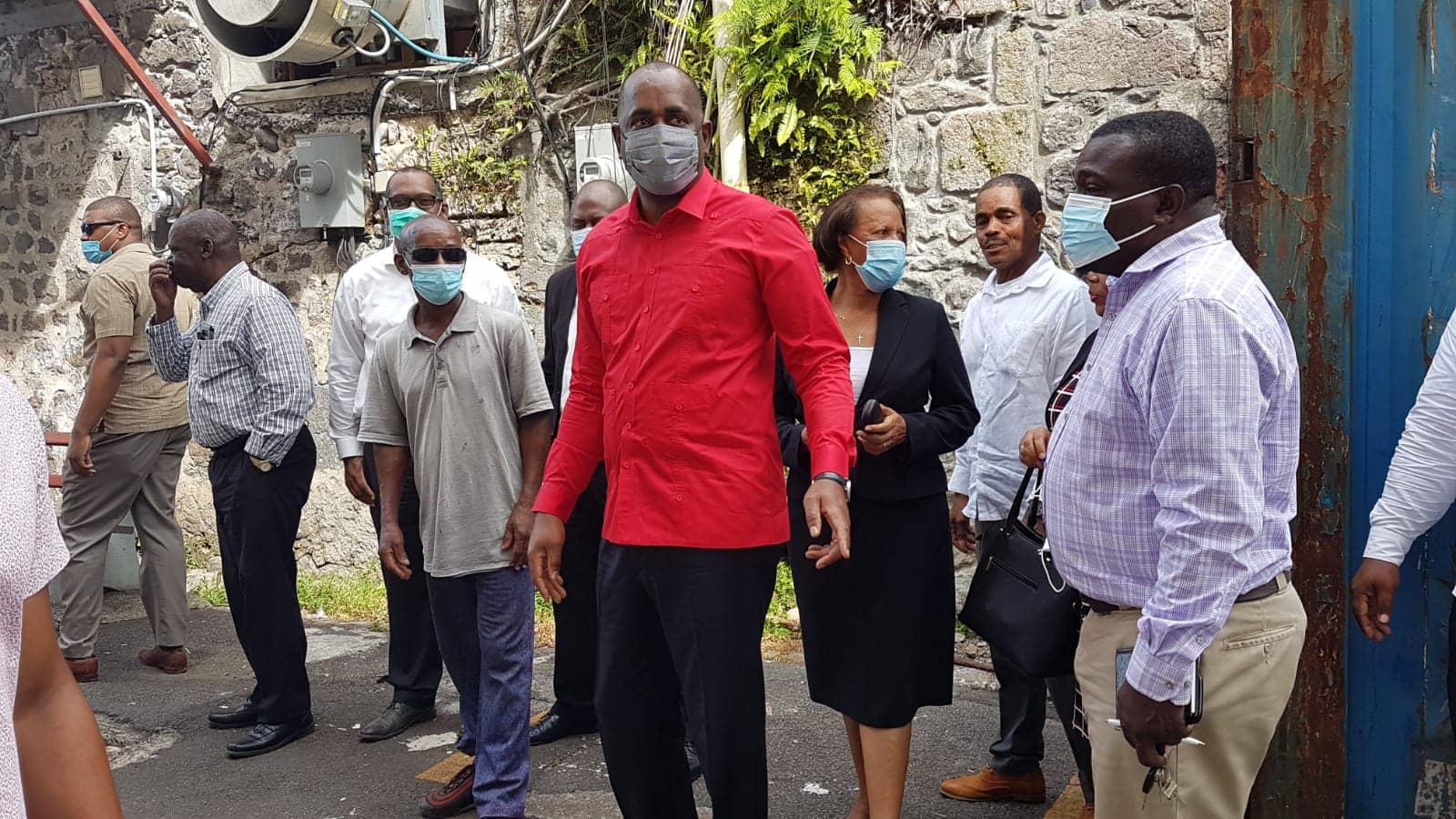
A magistrate set July 8 as the date for the start of a case against Prime Minister Roosevelt Skerrit and 14 other members of his ruling Dominica Labour Party (DLP).
Skerrit and his co-accused all pleaded not guilty on Thursday when they appeared in the Roseau Magistrate Court on a charge of treating.
Last month, the Trinidad-based Caribbean Court of Justice (CCJ) dismissed an appeal filed by Skerrit and other DLP candidates who were successful in the 2014 general elections, reinstating complaints filed against them for the charge of treating.
Treating refers to directly or indirectly providing food, drink or entertainment to a person, during or after an election, with the aim of corruptly influencing that person’s vote. The law in Dominica is that a person convicted of treating is disqualified from sitting in the House of Assembly and cannot run for elections for seven years.
According to the charge read out in the court, in the run up to the December 8, 2014 general election, the government ministers did work together to corruptly influence the results of the election by engaging in the unlawful act of treating by hosting two free concerts at the Windsor Park Sport Stadium.
The first event was held on November 28, 2014, and featured three time Grammy award winner and international gospel star, Donnie McClurkin whilst the second event was held on December 6, 2014, featuring Morgan Heritage, which is said to have corruptly influence the Dominican electorates to vote for the candidates of the DLP, contrary to Dominica’s House of Assembly Election Act.
The DLP won the election by a 15-6 margin, and in its ruling, the CCJ dismissed the appeal and affirmed the order of the Court of Appeal, reinstating the Magistrate’s summonses for the appellants to appear to answer the election charge.
It held that summary proceedings for treating were not brought to determine the validity of someone’s membership to the House of Assembly; rather, they were brought to vindicate the criminal law, or in other words, to try someone accused of committing the offence of treating.
Advertise with the mоѕt vіѕіtеd nеwѕ ѕіtе іn Antigua!
We offer fully customizable and flexible digital marketing packages.
Contact us at [email protected]
















